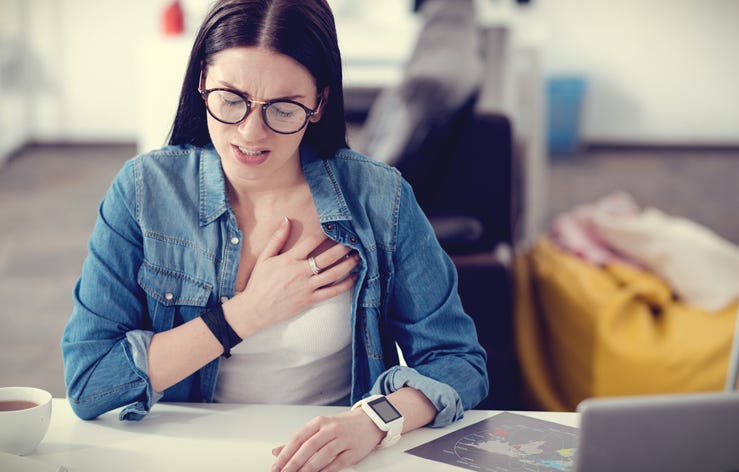
Although the U.S. has seen a drop in heart attack-related deaths over the past two decades, a troubling new trend has emerged: heart attacks are occurring more frequently in younger people.
A heart attack, also called a myocardial infarction, happens when a part of the heart muscle doesn't get enough blood. The more time that passes without treatment to restore blood flow, the greater the damage to the heart.
Several health conditions, lifestyle factors and family history can increase the risk for a heart attack. According to the Centers for Disease Control and Prevention, about half of all Americans have at least one of the three key risk factors for heart disease: high blood pressure, high blood cholesterol, and smoking.
Recent research shows more heart attacks are striking those under age 40.
"It used to be incredibly rare to see anyone under age 40 come in with a heart attack — and some of these people are now in their 20s and early 30s," Dr. Ron Blankstein, preventive cardiologist at Brigham and Women's Hospital, said in a statement. Now, 1 in 5 heart attack patients are younger than 40 years of age.
As for what's driving the increase in heart attacks among younger adults, researchers say they share the traditional risk factors as their older counterparts including diabetes, high blood pressure, smoking, family history of premature heart attack and high cholesterol. The main difference researchers noted is that younger patients more often report substance abuse, including marijuana and cocaine.
While heart attacks are increasingly common in younger people, many don't believe they're at risk. A survey of more than 2,000 adults by The Ohio State University Wexner Medical Center found 47% of those under age 45 don't think they are at risk for heart disease.
"It is alarming that younger people don't feel that they're at risk for heart disease but it's not surprising. Most young people think heart disease only happens in old people but that's not the case," Dr. Laxmi Mehta said in a statement.
Ohio State's study also found about a third of those surveyed wouldn't know if they were having a heart attack.
"If something suddenly seems new and doesn't make sense to you, seek immediate medical attention. Don't wait until tomorrow to see if you feel better. Let healthcare professionals decide if you're having a heart attack or not," said Mehta.
Signs of a heart attack include:
• Chest pressure, tightness or fullness
• Squeezing, pain or discomfort in the center of the chest that lasts for minutes and sometimes radiating to the shoulders, neck, arms or jaw
• Chest pain that increases in intensity or that’s not relieved by rest
• Chest pain that occurs while sweating
• Fainting or dizziness
• Shortness of breath
• Indigestion, nausea or vomiting
• Unexplained weakness or fatigue
• Cool, clammy skin
• Paleness
A heart attack is a medical emergency and anyone experiencing these symptoms should call 911 immediately and get to an emergency room.
